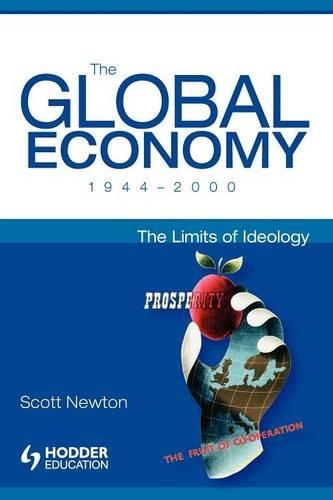
The Global Economy 1944-2000: The Limits of Ideology
(Paperback)
Publishing Details
The Global Economy 1944-2000: The Limits of Ideology
By (Author) Prof. Scott Newton
Bloomsbury Publishing PLC
Hodder Arnold
11th March 2004
United Kingdom
Classifications
Tertiary Education
Non Fiction
International economics
Globalization
Economic history
337.09045
Physical Properties
Paperback
224
Width 155mm, Height 234mm, Spine 9mm
368g
Description
Globalization - the development of a world without economic frontiers - has become an increasingly popular subject for economists, social scientists and political commentators. The conventional wisdom is that this new international economy is the natural outcome of market forces and cannot be resisted except at great cost to economic and social welfare. This title challenges this argument of three grounds. First, the national power of the USA has been manipulated since the 1940s to promote an open international economy. Second, multinational capital emerged as a key influence in support of the historic aims of US foreign economic policy. Third, there has been resistance to these pressures since the 1940s by socialist, social-democratic and by radical nationalist movements in the industrialized and developing worlds. It was not the marked so much as the interplay between these influences that shaped the contemporary international economy. By bringing a clear historical perspective to the study of the world economy since 1944, the author shows how it has changed over time in response to the balance of forces within and between countries, and is not simply destined for free market globalization or any other "inevitable" fate.
Reviews
'Scott Newton's The Global Economy is a godsend for all those who need to get their own minds - let alone their students' minds - around one of the most important yet complicated phenomena of the 20th century. This is "grand sweep history" at its best.' * Peter Hennessy, Atlee Professor of Contemporary British History, Queen Mary, University of London *
'A critical view of our current world order that highlights the political and economic tensions that plague it. Bravo! A challenging book that fills an important gap. Highly Recommended.' * Choice *
Author Bio
Scott Newton is Reader in Modern British and International History at the University of Cardiff, UK.
